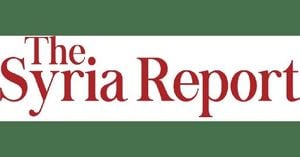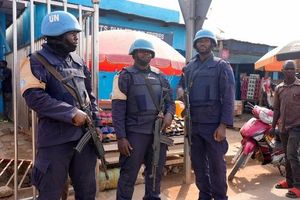Controversial Allegations Haunt South Korean Presidential Election
Accusations of widespread fraud have cast shadows over South Korea's recent presidential election, raising concerns about integrity and government transparency.
The 2022 presidential election witnessed shocking allegations, as critics, including members of the opposition party, claimed systematic vote manipulation. They alleged the use of illegal practices to sway the election results, igniting fierce debates across the nation.
Legal experts analyzed the laws surrounding electoral fraud to clarify the applicable consequences for those involved. The primary opposition party, Democratic Party of Korea, has vocally opposed the election results, demanding thorough investigations. This discord has left many citizens divided.
Political analysts suggest the government could face serious ramifications if the claims are substantiated, which may erode public trust and affect future elections. The specter of fraud allegations continues to loom large, evidenced by spikes in media coverage and public discourse.
Local resident Kim Jinsook, expressing her distress, noted, "I just want to believe our election is fair, but all these allegations make me doubt everything." Her sentiments are echoed by many South Koreans, reflecting the widespread apprehension surrounding election integrity.
The government has attempted to ameliorate the situation by promoting transparency and adherence to democratic principles. Despite this, the opacity created by fraud allegations complicates these efforts. Critics argue measures, such as public assistance to traditional markets, aim to distract the electorate from more pressing issues involving electoral fairness.
Meanwhile, the Ministry of Internal Affairs and Safety has been under scrutiny for its handling of the fraud claims. Calls have intensified from civil rights groups urging independent investigations. These organizations stress the importance of accountability, citing historical precedents where suppression of inquiry led to political upheaval.
"If we do not address these claims adequately, we set a dangerous precedent for the future of democracy," asserted Lee Sangho, spokesperson for the Civil Rights Group. He called for governmental accountability and citizen awareness during the impending disdainful turbulence.
Experts have emphasized the deep impact of these allegations on public sentiment. Trust indicators show declining confidence toward governmental institutions, with many South Koreans expressing skepticism about effective change. This situation emphasizes the need for cohesive action from political leaders.
Nevertheless, the controversy has inadvertently galvanized segments of the population, particularly young voters, who now express greater interest and participation in electoral processes. Activism around the election integrity has sparked discussions, leading to increased registrations among first-time voters.
Many have gathered to voice their demands for rectified elections by participating in rallies to urge government reform. Despite their fervor, skeptics maintain this newly charged political activism may wither if fraud allegations remain unresolved.
Concerns about manipulation extend beyond simple ballots; they encompass broader psychological divisions among citizens. Scholars analyze how these themes connect to South Korea's national identity, asserting the importance of restoring faith within the electoral system.
Throughout this turmoil, there have been calls for enhanced voting technologies, such as blockchain, aimed at fostering transparent elections. Enthusiasts argue these innovations may be key to reassuring citizens as election integrity remains high on their agendas.
One Korean statistician highlighted, "The technology exists to create secure and verifiable elections. It’s time the government invested to restore the people's trust." This perspective resonates with many citizens eager for reform.
Public opinion polls reveal near equal divides, with some endorsing governmental action to support traditional marketplaces to aid local economies as distraction methods, arguing they’re noble yet ineffective under current societal pressures.
The government’s response to the alarming fraud claims has ensued with attempts to recover economic stability concurrently. Initiatives promoting local traditional markets have appeared as avenues to engage economically disadvantaged populations as nations strive to rebuild their communities amid inflationary pressures.
While some laud this as adequate, skeptics view it as merely superficial, underscoring the larger cultural rift between citizens and their elected representatives. Their relationship continues to bear the weight of discontent from unfounded, alleged electoral misconduct.
Society now watches closely, wary of the direction South Korea may take. With pressures intensifying, citizens are poised to hold leadership accountable beyond mere economic measures, demanding fundamental rights, fairness, and integrity.
These consequential themes will continue to inform the South Korean political zeitgeist as they grapple with the repercussions of the allegations structured against the backdrop of social discord and economic disparities.
Until investigations arrive at concrete conclusions, the allegations serve as constant reminders of the fragile equilibrium of trust necessary for democracy.



